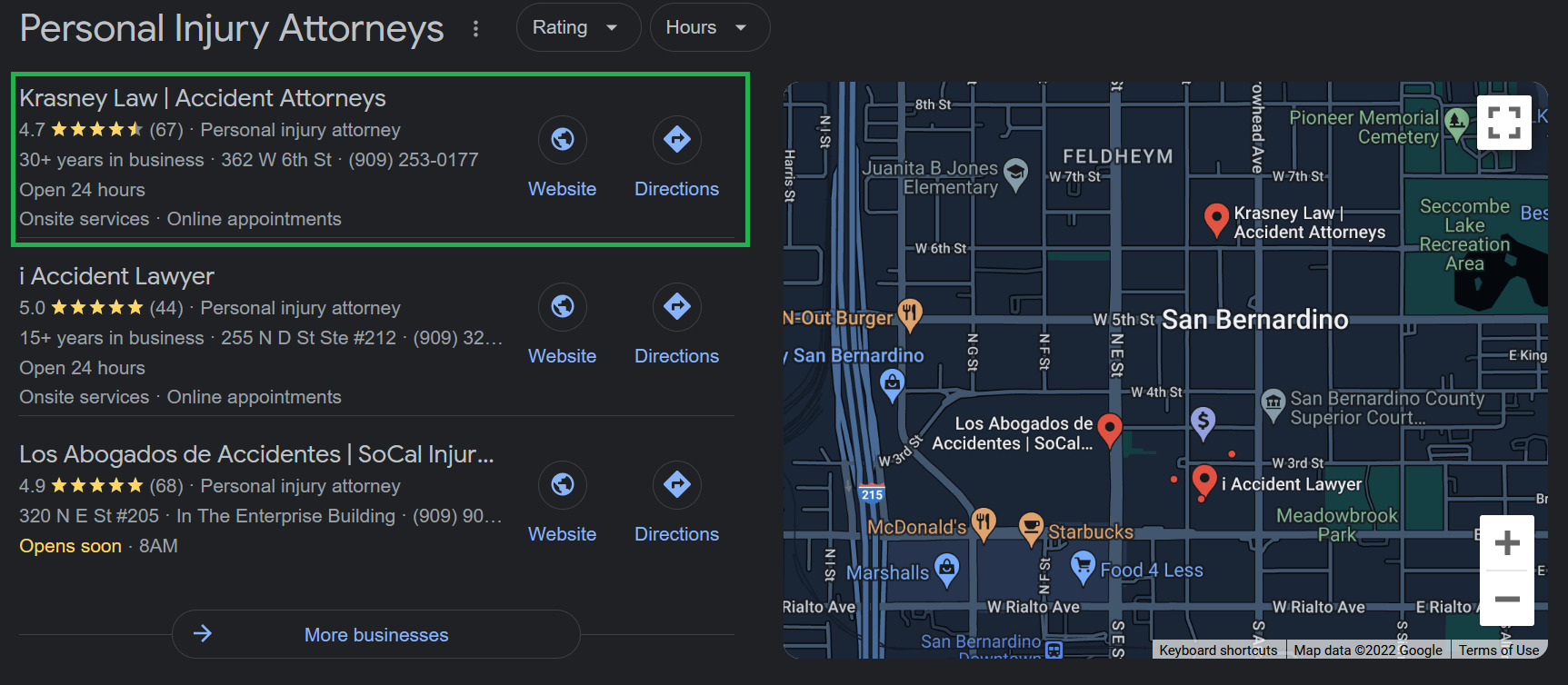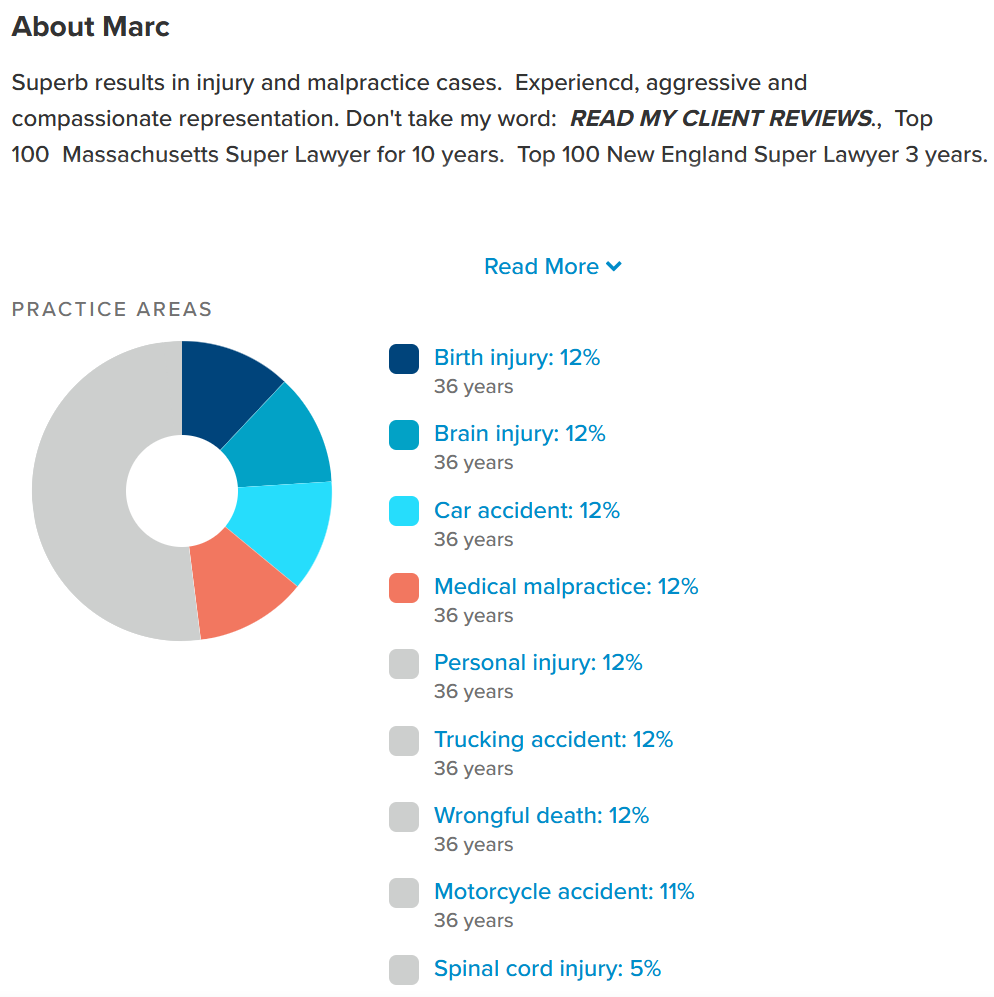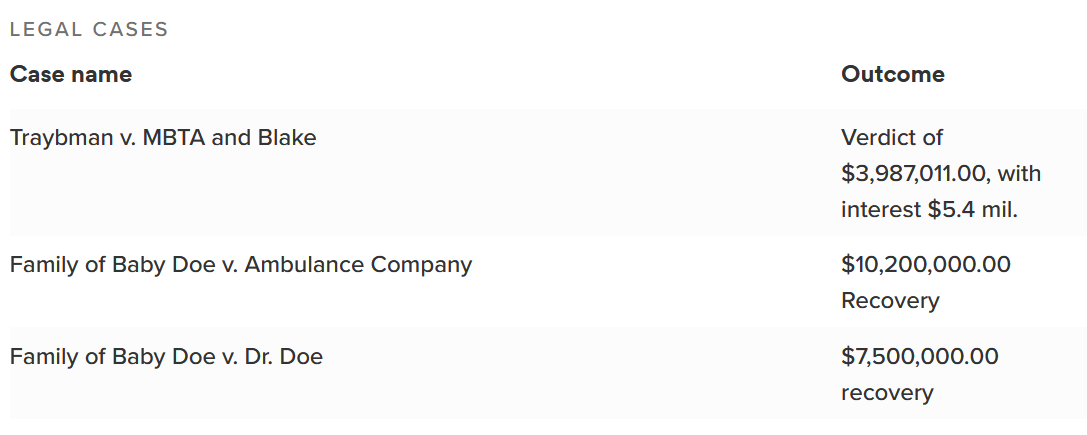This guide contains step-by-step instructions for increasing your Avvo rating and details the items have an impact on your Avvo rating.
At the end of the guide, we address a few of the most common questions we receive relating to Avvo attorney ratings.
You can use the hoplinks below to jump to the section of the guide that is most relevant to you. Or checkout the complete guide, enjoy the read!
Table Of Contents
- What Is Avvo And Why Does It Matter?
- 9 Ways To Increase Your Avvo Rating
- Sign up and claim your profile
- Fill out every possible element of your profile
- Include any awards you’ve been given
- Provide your work history
- Highlight your best cases
- Provide details regarding any publications
- Highlight prominent speaking engagements
- Provide details of membership in legal or business associations
- Add peer endorsements
- Things You Should Not Waste Your Time On
What Is Avvo and Why Does It Matter?
Have you heard of Avvo? If you are an attorney, you need to know about it. Why? Because there’s a good chance you have a profile on Avvo.com, even if you didn’t create it. And if you have a profile, you have an Avvo Rating.
Avvo is an online directory that includes detailed listings of and ratings for attorneys that is designed to help people find the right lawyer for them. If someone searches “how to find an attorney” there’s a good chance Avvo will show up in the search results.
Your Avvo rating is a 1 to 10 score given to you by Avvo.com, and this score is determined by the content of your Avvo profile.
If you want a high lawyer rating (and you do) it’s essential that your Avvo profile is filled out completely, including personal information, experience, honors, presentations, and recommendations.
In addition to being displayed on your Avvo profile, it’s also displayed in search results when people are searching for specific lawyers and you fit the criteria. Just like Google Business Profile/Map listings give insight into the quality of businesses, the Avvo rating is designed to help people choose the best lawyer for them and their specific needs.

What Do Avvo Ratings Mean?
The Avvo rating scale is as follows:
| Rating | Designation |
| 10.0 – 9.0 | Superb |
| 8.9 – 8.0 | Excellent |
| 7.9 – 7.0 | Very Good |
| 6.9 – 6.0 | Good |
| 5.9 – 5.0 | Average |
| 4.9 – 4.0 | Concern |
| 3.9 – 3.0 | Caution |
| 2.9 – 2.0 | Strong Caution |
| 1.9 – 1.0 | Extreme Caution |
There is debate among lawyers regarding whether Avvo ratings matter. Many think they don’t, and they’re not necessarily wrong. For now. After all, how many people really rely on Avvo to help find a lawyer? It may be more than you think.
Remember, this is the same argument many in the service industry made when the site Angie’s List was in its early stages. But it grew very quickly and soon it was essential for businesses to have a high quality rating. Avvo appears to be on a similar trajectory.
In July of 2015, Avvo received $71.5 million in funding. The purpose of that funding? To grow the company as a whole, specifically brand awareness. In other words, Avvo is focused heavily on growth and we should expect their audience to keep growing.
Additionally, when people search for law related terms OR specific attorneys, the Avvo profiles often show up in the Google search results. So, if someone is considering hiring you as their attorney and they Google your name, the odds are high that your Avvo profile will be displayed. You may be an outstanding lawyer with an excellent record, but if the first thing someone sees is your profile with a low rating, that’s a bad first impression.
Bottom line: Even though the Avvo rating system may be questionable, it can play a significant role in how you are perceived as a lawyer. Because of this, it’s in your best interest to do whatever you can to boost your overall rating.
One additional benefit to having a high Avvo rating is that it can boost your profile in local search results. When someone in your city searches for “lawyer near me” or “Lawyer in [city name]” there’s a higher chance that your profile will be in the top results, which can lead to more leads and clients.
How Is the Avvo Rating Calculated?
Avvo doesn’t tell us exactly how they calculate the rating for each profile. What we do know is that they rely heavily (or even exclusively) on the information you provide in your profile. The more thorough and up to date your profile is, the better.
According to Avvo.com:
The Avvo Rating is calculated using a mathematical algorithm that evaluates the information in your profile. If it’s not in your profile, then we don’t know about it, and if we don’t know about it, then we can’t give you credit for it. Adding relevant information (the more current, the better) to your profile can translate into points toward your rating.
In some ways, this is a good thing. While you’re not totally in control of your profile, your actions go a long way in determining your overall rating.
So, with that in mind, let’s look at some specific things you can do to boost your Avvo profile rating.
9 Ways To Increase Your Avvo Rating
Want to know how to improve your Avvo rating? Thankfully, it’s not especially difficult. Follow these 9 steps to increase your Avvo rating.
1. Sign up and claim your profile
First, and most obviously, you have to create an Avvo account and then claim your individual profile. After signing up, you can search for your name here: Avvo.com/for-lawyers/avvo-profile
When you find your profile, click on your name and then click “Claim my profile”.
From there, you will then be sent to the Claim page. You can do this quickly and easily using LinkedIn, Email, Facebook, or your Phone Number.
2. Fill out every possible element of your profile
This part is key. Remember that Avvo calculates your profile rating based on the information you provide. By entering all the relevant information, you can get your profile to 95% complete. The only way to get a 100% rating is to place an Avvo Rating Badge on your website. This really isn’t necessary and won’t keep you from receiving a rating of 10.
You need to provide the following information for your profile:
- About Me
- Associations
- Awards
- Licenses
- Cases
- Client Ratings
- Contact Information
- Education
- Fees & Payments
- Headshot
- Languages
- Media
- Peer Endorsements
- Practice Areas
- Publications
- Speaking Engagements
- Work Experience
It’s very important that you fill out the various types of law that you practice. Why? Because this determines what categories you show up in when people search. If you’re an estate planning lawyer and you indicate that 100% of your work involves establishing trusts, you will only show up when people search for trusts.
It’s much better to specify all the different types of work you do. As an estate planning attorney, you want to show up in searches related to creating a last will and testament, probate court, inheritances, and much more. In your profile, be clear about how much work you do in each sub-category
One more thing to add to your profile is any additional state bar licenses. Adding additional licenses can raise your Avvo rating by a full point, even if the licenses were in the past.
And this may sound obvious, but if you were disciplined by any state bar, don’t add that to your profile. It will hurt your rating significantly.
3. Include any awards you’ve been given
One of the downsides of the Avvo rating system is that if you don’t have some sort of award, you can’t get a perfect rating. Additionally, many in the law community question the credibility of the awards that have the biggest impact on Avvo scores.
Regardless, if you have any awards make sure to add them to your profile since they have a positive impact.
When listing awards, include the date you received the award. The amount of points you earn for each award is determined by a variety of factors, including the date it was awarded. Recent awards will give you a greater number of points than those from prior years. If no date is provided for an award, Avvo will consider the earliest possible date, resulting in the lowest total amount of points
4. Provide your work history
Similar to a resume, your Avvo profile should contain your work history as an attorney. This adds to your credibility, shows that you have experience, and gives people more confidence in your abilities.
As you’re listing your work history on Avvo, always provide start and end dates where Avvo asks for them. This will boost your rating on Avvo.
5. Highlight your best cases
Avvo allows you to add cases you have participated in to your portfolio. Include your best cases that resulted in the greatest outcomes for your clients. Not only does this boost your Avvo rating, it also improves your reputation in the eyes of those searching for a lawyer to help them.
6. Provide details regarding any publications
Your Avvo profile also has a section where you can list any publications you’ve written. This can include books, articles, scholarly works, blog posts on high profile websites, and more. Including links to publications also allows potential clients to view the works for themselves.
7. Highlight prominent speaking engagements
Like publications, you should also list any past speaking engagements. To be fair, this will only provide a small boost to your Avvo rating. Additionally, you need to be able to link to official organizations websites where your engagements are listed.
You don’t need to panic if you don’t have any speaking engagements to highlight. While the rating boost is helpful, it isn’t nearly as significant as other elements.
8. Provide details of membership in legal or business associations
If you’re part of any legal or business associations, add those to your profile as well. This can include things like your state and city bar associations, the Better Business Bureau, or non-profits like The Legal Aid Society in New York City.
Like your work history, include the dates during which you were a member of an organization, as well as the position you held within the group.
9. Add peer endorsements
Peer endorsements on Avvo function in a similar fashion to those on LinkedIn. Receiving endorsements from peers improves your reputation in the eyes of Avvo, leading to a higher rating.
Avvo asks two questions about every peer endorsement:
The first question is, “How do you know this lawyer?”, and includes the following options.
- Fellow lawyer in community
- Worked for lawyer
- Supervised lawyer
- Worked together on a matter
- Opposing counsel on a matter
- Co-Worker
- Friend
- Family Member
- Other
The second question is, “For which practice area are you endorsing this lawyer?”
While Avvo doesn’t specify which working relationships boost ratings the most, “Worked together on a matter” and “Opposing counsel on a matter” seem to have a much larger impact on ratings than the other options.
Things You Should NOT Waste Your Time On
In addition to filling out your profile, Avvo allows you to do numerous other things as well. However, these things do not boost your rating.
Accumulating client reviews
It’s good to have several client reviews on your profile to instill confidence in potential clients. However, reviews don’t actually boost your Avvo rating, so spending significant amounts of time gathering them probably isn’t worth it.
Publishing in-depth legal guides
Creating legal guides is one of the most ineffective ways to spend your time and effort on Avvo. They require a significant investment of time, and the odds of people even seeing them are low given the huge amounts of duplicate content on the site. And to top it off, they don’t boost your Avvo rating.
If you do invest time and effort in writing a legal guide, it will have more value for your own website where it may rank for search queries and attract new customers.
Participating in forums
Avvo has a large legal Q&A forum where you can post answers to questions within your specialty area. While this can help you demonstrate your knowledge, it will not boost your Avvo Rating.
However, if you respond in a positive, complimentary fashion to a question that has already been adequately answered by an attorney, you may be able to get a Peer Endorsement.
Paying for advertising
To be clear, advertising your services on Avvo can help your profile be seen by more people. This may lead to an increase in leads, but there’s certainly no guarantee. And paying for ads does not improve your Avvo rating. So overall, you’re better served to focus on optimizing your profile.
Final Thoughts
Though it may not make an immediate difference, optimizing your Avvo profile to achieve the highest rating is worth the time. It can increase the frequency with which you show up in search results, establish your expertise in the eyes of your audience, and help attract more clients in the long run.





